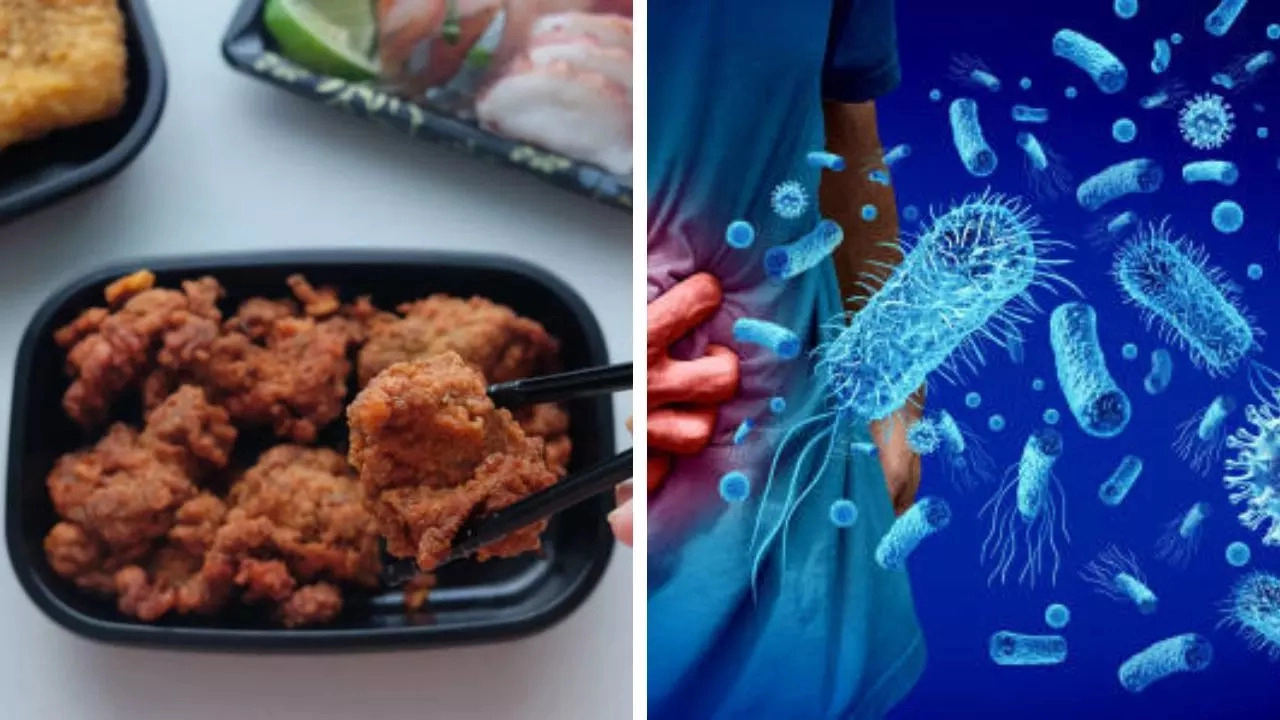
BrucePac initiated the recall after the tested products came back positive for Listeria monocytogenes bacteria
The US’ major seller of ready-to-eat chicken and meat products, BrucePac has recalled nearly 10 million pounds of items sold at major stores nationwide, including Trader Joe’s, Wegmans, 7-Eleven, and Kroger, over Listeria risk.
According to the Agriculture Department’s Food Safety and Inspection Service, the company itself initiated the recall after the tested products came back positive for Listeria monocytogenes bacteria. According to officials, the Oklahoma-based company’s pre-cooked chicken has been touted as the source of the contamination.
The list of recalled items includes premade salads, burritos, and wraps containing chicken, along with other meats like bacon or ham. The company says these items were produced between June 19 to October 8 and the expiration dates for most of the products have passed.
Other stores that sold the potentially contaminated foods include Walmart, Meijer, Giant Eagle, Amazon, Target, and Aldi, as well as some gas stations and corner stores.
No illnesses reported
According to officials, no illnesses linked to BrucePack meat have so far been reported, but hospitals and clinics have been alerted to check for patients who come with listeria symptoms.
A few affected products may still be on store shelves or in consumers’ refrigerators or homes, the Agriculture Department said. It has urged businesses not to sell any remaining products that could be affected and told consumers to throw away or return any recalled items they may have.
What is listeria?
According to experts, Listeriosis is a foodborne illness that is caused by Listeria monocytogenes bacteria - commonly found in nature, especially in soil, groundwater, rotting vegetation, and animal feces.
Doctors say most people get listeriosis from eating contaminated foods - within one to two weeks, but the incubation period can also be as short as a couple of days or as long as three months. Other names for listeriosis include L. monocytogenes and listeria.
Frozen and ready-to-eat food products have the highest risk of L. monocytogenes contamination, as the bacteria can survive and even multiply in low temperatures, including refrigerators and freezers. The bacteria also multiply to dangerous levels during storage. Food that has spoilt develops an unpleasant smell, taste, or change in texture.
Who is highest at the risk of developing listeria?
Doctors say even though anyone can get listeria, it is not too dangerous for those with a healthy immune system. However, those at the greatest risk of becoming very ill or dying include:
- Pregnant women
- Developing fetuses
- Those who are 65 years of age or older
- Those with a weakened immune system, usually from another condition
Signs and symptoms of listeria
Severe listeria infection can spread to your bloodstream or brain causing life-threatening sepsis, meningitis, or encephalitis. A few symptoms to know are:
- Fever
- Chills
- Headache
- Upset stomach
- Diarrhoea
- Nausea and vomiting
- Confusion
- Loss of balance
- Convulsions or muscle contractions that you cannot control
Ways to treat listeria
According to experts, the best way to treat listeria is to get antibiotics prescribed by your doctors to rid your body of the infection. Antibiotics commonly used to treat listeriosis include Bacter-Aid DS® and ampicillin.
If you have mild symptoms, you may not need treatment.
Get Latest News Live on Times Now along with Breaking News and Top Headlines from Health and around the world.

